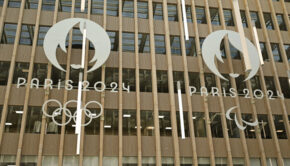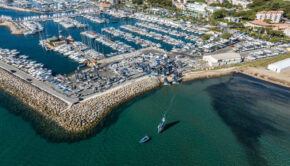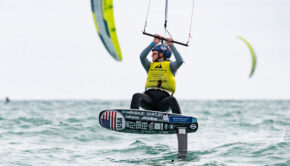Sickness Status at Olympic Test Event
Published on August 19th, 2015
Rio de Janeiro, Brazil (August 19, 2015) – With pollution concerns at the sailing venue for the 2016 Olympic Games, the Aquece Rio – international Sailing Regatta 2015 (Aug. 15-22) has offered an opportunity to measure the experience of the 309 sailors competing among the 10 Olympic events.
British 470 crew Elliot Willis crew is optimistic about the venue. “It’s definitely cleaner this year, and we’ve not had a problem with at all. This is a stunning place to sail.”
American Laser Radial sailor Paige Railey has long been a fan of Guanabara Bay. “Rio has always been my most favorite place in the world to sail and visit. Ever since the 2007 Pan Am Games, I have claimed this place to be the best. Seeing how the venue is being developed for the 2016 Games, it is very motivating for me to compete here next year.”
The International Sailing Federation (ISAF) today issued the following update after the fifth day of competition at the Olympic Test Event:
Since arriving in Rio, there have been two cases of sailor sickness reported to ISAF, which are Korean RS:X sailor Cho Wonwoo and one other competitor who wishes to keep their identity private. Wonwoo has fully recovered, finishing 14th in the single Men’s RS:X race on 19 August due to light winds.
ISAF have taken a number of proactive steps to ensure the health and safety of the 309 athletes competing in the Aquece Rio, the Olympic Test Event.
Dr. Nebojša Nikolic, a member of ISAF’s Medical Commission, is in attendance to work with the International Olympic Committee (IOC) and Rio 2016 to gain a further understanding so ISAF can make smart and safe decisions for all the teams out on the water inside and outside of Guanabara Bay.
Dr. Nikolic has been working closely with the sailors and there is no confirmation that their sickness is related to the waters inside or outside of Guanabara Bay.
In addition, Dr. Nikolic has been working closely with the 50 nations in attendance offering medical guidelines for all international coaches. These guidelines, that offer ten recommendations, are advised for all international competitions in order to protect a sailor’s health abroad and therefore enhancing their competitive edge in racing.
The medical guidelines for the international team coaches are available on the ISAF website.
There are also 62 ISAF affiliates in Rio which include Race Officers, International Jury, Equipment Inspectors, ISAF Executive representatives and ISAF Staff, all of whom have been on the water with no sickness reported from the group.
In addition, ISAF have appointed International Race Official Pedro Rodrigues to work alongside Rio 2016 sustainability and the local government to ensure the racing areas are safe for fair sailing for the duration of the test event.
The health and welfare of all athletes competing is a top priority for ISAF. Water quality is an important aspect at all Olympic Games and is regularly addressed between ISAF, the International Olympic Committee (IOC) and Rio 2016.
The organisers have taken proactive measures – such as closing landfills, reducing industrial pollution, increasing water treatment works, and reducing floating garbage – that are being taken and implemented by the local authorities to guarantee the quality of the water in the field of play areas of the bay and ensure that the athletes will be able to compete safely.
Local efforts to improve the environment will be sustained until the staging of the Games in 2016 and will certainly provide a great legacy, as Rio de Janeiro works to improve the state of the bay generally.
The Test Event will allow ISAF the opportunity to gather key facts to evaluate in advance of making the final decisions that will govern the 2016 Olympic Sailing Competition.
ISAF is supporting and tracking all activities to improve the water quality, ensuring fair sailing and wants to ensure that the Rio 2016 Olympic Sailing Competition is a fantastic event that is remembered for the right reasons.









 We’ll keep your information safe.
We’ll keep your information safe.